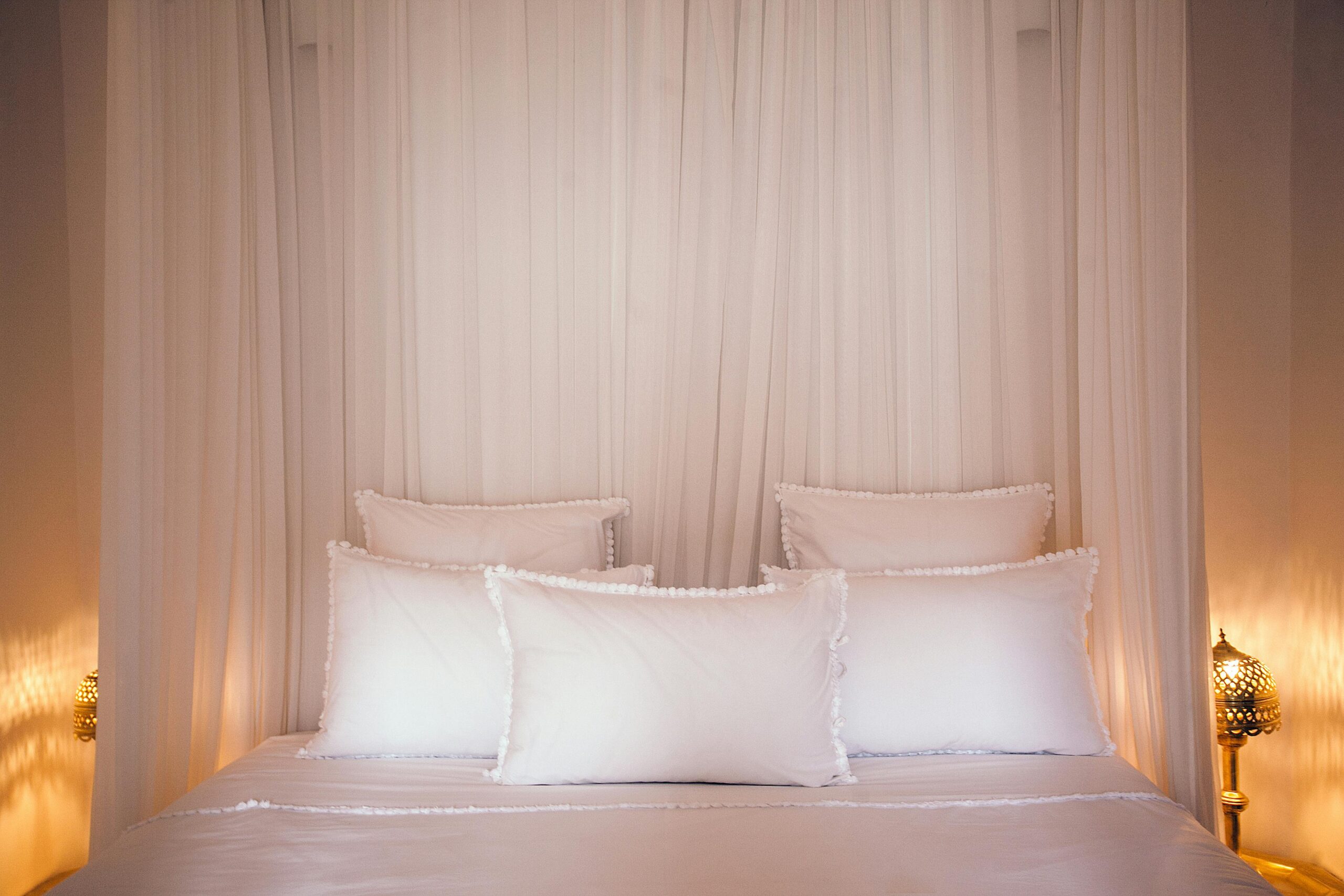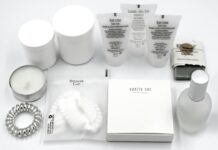When it comes to traveling, nothing beats the comfort of a clean hotel that feels like a home away from home. But have you ever wondered how to experience spotless stays every time? In this article, we’ll uncover the clean hotel secrets that will transform your hotel stays from ordinary to extraordinary. Whether you’re a frequent traveler or planning a special getaway, knowing these insider tips can make all the difference in ensuring your room is hygienic, fresh, and welcoming. So, why settle for less when you can enjoy a pristine environment wherever you go?
The truth is, not all hotels maintain the same level of cleanliness, and sometimes what you see isn’t always what you get. But don’t worry – with our ultimate guide to hotel cleanliness, you’ll learn how to spot the signs of a truly spotless hotel room, what questions to ask, and the must-know hacks that hotels don’t advertise. Curious about the best ways to avoid hidden germs or how to pick a room that’s been thoroughly sanitized? Stay tuned as we reveal the powerful cleaning tips and tricks used by hospitality experts to guarantee a safe and sparkling stay.
In today’s travel landscape, where hygiene has become more important than ever, mastering the art of choosing a clean hotel is essential. From checking recent guest reviews to understanding cleaning protocols and even what to pack for extra sanitation, our guide covers everything you need to know. Ready to elevate your hotel experience and enjoy peace of mind on your next trip? Keep reading to discover the must-know secrets for consistently spotless stays and become a savvy traveler who never compromises on cleanliness!
7 Proven Clean Hotel Secrets Every Traveler Must Know for a Spotless Stay
Traveling to New York or anywhere else in the world, finding a clean hotel room is something every traveler hope for. But sometimes, the reality does not match expectation. You can arrive tired and excited, only to find the sheets not properly changed or the bathroom a little less spotless than you imagined. So, what are the secrets to making sure you always get a clean hotel stay? Here are 7 proven clean hotel secrets every traveler must know for a spotless stay that will help you enjoy your trip without worrying about hygiene.
1. Research and Read Reviews Carefully
Before booking a hotel, always check multiple review sites. Websites like TripAdvisor, Google Reviews, and Yelp provide honest feedback from past guests. Look for keywords like “cleanliness,” “hygiene,” or “spotless.” Sometimes, even if the hotel looks nice on pictures, guest comments reveal problems you won’t see in advertisements. It’s important to note, though, reviews can be biased or fake, so cross-referencing across different platforms is helpful to get a clearer picture. Hotels with many positive mentions about their housekeeping standards are usually a safer bet.
2. Choose Hotels with High Cleanliness Ratings or Certifications
Many hotels now pursue certifications from organizations such as the American Hotel & Lodging Association’s Safe Stay program or the Global Biorisk Advisory Council (GBAC). These certifications indicate that the hotel follows rigorous cleaning protocols, especially after the COVID-19 pandemic made cleanliness more critical. You can often find these badges on the hotel’s official website or booking platforms. Hotels who participate in these programs use hospital-grade disinfectants and train staff in enhanced cleaning methods, which can gives you extra peace of mind.
3. Request a Room Away from High-Traffic Areas
Hotel rooms near elevators, ice machines, or vending areas tend to accumulate more dirt and noise. Choosing a room on a higher floor or farther from these spots can reduce exposure to germs and improve your overall experience. If you ask the front desk politely, sometimes they can accommodate your request, especially if you mention concern about cleanliness or noise. This tip is practical and often overlooked by travelers who just accept whatever room they get.
4. Inspect Your Room Upon Arrival
Don’t just drop your bags and relax immediately. Take a few minutes to check the cleanliness of the room yourself. Here is a quick checklist:
- Check the sheets and pillowcases for stains or hair.
- Look under the bed and furniture for dust and dirt.
- Inspect the bathroom for mold, mildew, or leftover toiletries.
- Turn on the lights and look at corners for cobwebs or debris.
- Smell the room for any unpleasant odors.
If you find something unsatisfactory, report it politely to the front desk and ask for a room change or extra cleaning. Most hotels want to keep their guests happy and will accommodate reasonable requests.
5. Bring Your Own Cleaning Supplies
Some travelers prefer to bring small cleaning essentials like disinfectant wipes, hand sanitizer, or even a travel-sized spray cleaner. Wiping down frequently touched surfaces such as doorknobs, light switches, remote controls, and faucet handles can reduce your exposure to germs. This habit became more common during the pandemic but remains a smart practice anytime you stay in a new place. Bringing your own supplies gives you control over how clean your immediate environment feels.
6. Know Which Materials Are More Hygienic
Not all hotel room materials are equally easy to clean. For example:
- Hard surfaces like glass, metal, and sealed wood are easier to disinfect than fabric.
- Avoid lying directly on carpeted floors or upholstered furniture without a barrier.
- Request rooms with non-carpeted floors if you have allergies or concerns about dust mites.
Understanding these differences can help you make better choices when booking or using the room. Some hotels now promote hypoallergenic or antimicrobial room features, which can be an added benefit.
7. Practice Personal Hygiene and Cleanliness Habits
Even if the hotel is spotless, your own habits play a big role in maintaining cleanliness during your stay. Simple actions like washing your hands regularly, not wearing shoes on the bed, and using a sleep mask or pillowcase cover can protect you from unseen germs. Also, consider airing out the room by opening windows if possible. These habits help you feel more comfortable and reduce the risk of illness.
To summarize these 7 clean hotel secrets, here is a quick comparison table of actions versus benefits:
| Action | Benefit |
|---|---|
| Research reviews thoroughly | Avoid dirty hotels before booking |
| Choose certified hotels | Higher cleaning protocols assured |
| Request rooms away from high-traffic zones | Less germs and noise exposure |
| Inspect room on arrival | Immediate problem detection |
| Bring your own cleaning supplies | Control over immediate environment |
| Choose rooms with easy-to-clean materials | Reduced microbial presence |
| Maintain personal hygiene | Lower risk of contamination |
Hotels have come
How to Find and Book a Truly Clean Hotel: Insider Tips for Hygienic Stays
Finding a hotel that is truly clean can sometimes be harder than it should be, especially when you travel to busy cities like New York. Not all hotels advertise their hygiene standards honestly, and some might look clean on surface but hide dirt or germs in unnoticed corners. If you ever stayed in a hotel room and felt uneasy about the cleanliness, you know how important it is to find a spotless stay. But how can you be sure before you book? This article shares insider tips and secrets on how to find and book a truly clean hotel, so your next trip won’t be spoiled by unclean surroundings.
Why Clean Hotels Matter More Than Ever
Hotels have always been expected to maintain a certain level of cleanliness, but since the pandemic, hygiene became a top priority. Guests no longer just want a room that looks nice; they want assurance that the surfaces, linens, and air are sanitized properly. Some hotels have started using new technologies like UV light cleaning and hospital-grade disinfectants. However, not every place follows these best practices, so it’s important to know what to look for.
Historically, hotel cleanliness standards were mostly regulated by local health departments but varied widely. Nowadays, many chains follow strict internal protocols but smaller hotels might not. This means your choice can impact your health and comfort a lot more than you think.
How To Research Hotel Cleanliness Before Booking
You don’t have to rely only on photos or star ratings when picking a hotel. There are several practical ways to check how clean a place really is:
- Read Recent Guest Reviews: Look for comments mentioning cleanliness, and don’t just trust the overall rating. Sometimes a hotel with a 4-star rating has recent complaints about dirty rooms or mold.
- Check for COVID-19 Safety Protocols: Many hotels now list their sanitation practices online. Look for mentions of enhanced cleaning, contactless check-in, and air filtration systems.
- Use Specialized Websites: Some travel sites focus on hygiene scores or have filters for “clean hotels.” These platforms collect data from guests specifically about cleanliness.
- Contact Hotel Directly: Don’t hesitate to ask the hotel about their cleaning routines. A hotel that is proud of their standards will gladly share their process.
- Look for Certifications: Some hotels have certifications from third-party hygiene inspectors or hospitality organizations ensuring high sanitation levels.
Spotless Stay Secrets: What Clean Hotels Do Differently
Hotels that maintain exceptional cleanliness usually employ a few key strategies. Learning about them helps you know what to expect or ask about:
- Daily Deep Cleaning: Besides regular housekeeping, top hotels deep clean rooms with professional-grade equipment on a daily basis.
- Linen and Towel Hygiene: Clean hotels always use freshly laundered linens and towels, often washed at high temperatures to kill germs.
- High-Touch Surface Disinfection: Door handles, light switches, TV remotes, and other frequently touched items are sanitized multiple times a day.
- Air Quality Control: Many clean hotels use HEPA filters and increase ventilation to reduce airborne pathogens.
- Transparent Cleaning Logs: Some places keep cleaning logs in rooms or public areas so guests can see when the room was last cleaned.
Handy Checklist For Inspecting Your Hotel Room
Even after booking, you might want to do a quick cleanliness check once you arrive. Here’s a simple checklist you can use to spot any issues early:
- Bed sheets and pillowcases should look bright white or freshly colored, without stains.
- Bathroom tiles and fixtures must be free of mold or soap scum.
- Carpets or floors should be vacuumed and without dust balls.
- Check behind furniture – sometimes dirt hides under beds or desks.
- Smell the room; a musty or chemical odor might indicate poor ventilation or harsh cleaning agents.
- Test the water in the shower and sink to ensure no discoloration or strange smell.
Comparison Table: Clean Hotels Vs. Average Hotels
| Feature | Clean Hotels | Average Hotels |
|---|---|---|
| Cleaning Frequency | Daily deep cleaning + spot checks | Basic housekeeping every 2-3 days |
| Linen Quality | Freshly laundered, high-temp wash | Sometimes reused or lightly cleaned |
| High-Touch Surface Care | Multiple sanitization daily | Occasionally wiped down |
| Air Filtration | HEPA filters or enhanced ventilation | Standard HVAC system |
| Transparency | Cleaning logs available to guests | No visible cleaning records |
| Guest Feedback | Mostly positive on hygiene | Mixed or negative hygiene reviews |
Booking Tips to Lock in a Clean Hotel Stay
When you are ready to book, keep these insider tips in mind for the best possible experience:
- Book Directly With the Hotel: Sometimes booking through third-party sites limits your ability to request specific rooms or ask about cleaning protocols.
- Choose Hotels with Recent Renovations: Newer or recently
The Ultimate Checklist: What to Inspect for a Clean Hotel Room Before You Settle In
When you arrives at a hotel after a long day of traveling, the last thing you wants is to discover that your room isn’t as clean as promised. Even the fanciest hotels sometimes can slip on cleanliness, and that can turn a relaxing stay into a stressful one. So, having a checklist ready to inspect your room before settle in is a smart move to make sure your stay is comfortable and hygienic. In this article, you will learn the ultimate checklist to spot a clean hotel room, some clean hotel secrets, and how you can experience spotless stays every time you travel. These tips are useful no matter where you stays, from New York City to small towns.
Why Cleanliness in Hotels Matter So Much
Hotels have been part of human civilization for centuries, dating back to ancient times when inns were places for weary travelers to rest. Cleanliness was always important but today, with health concerns and higher expectations, it become crucial. Dirty hotel rooms not only cause discomfort but can also be breeding grounds for germs and allergens. Especially in the post-pandemic world, hotels have to follow strict sanitation protocols—but sometimes, things get missed. Knowing what to check can give you peace of mind.
The Ultimate Checklist: What To Inspect For a Clean Hotel Room
When you enter your room, don’t just drop your luggage and relax. Take a few minutes to do a quick inspection using these points:
Bedding and Linens
Look closely at the sheets, pillowcases, and blankets. Are they crisp and white with no stains or hairs? If there’s any discoloration or odd smell, request fresh linens or a new room.Bathroom Cleanliness
Check the toilet, sink, and shower for grime, mold, and hair. The shower curtain or door should be spotless with no soap scum. Tap water should be clear, and towels must be fluffy and fresh.Dust and Surfaces
Run your hand over the bedside tables, desk, and lampshades. Dust or sticky residue suggests poor cleaning. Also, check behind furniture if possible.Floor Condition
Carpet or hardwood floors should look vacuumed and free from debris. Sticky or damp spots might be a sign of neglect.Air Quality and Odors
A clean room usually has a neutral or slightly fresh scent. Strong chemical smells or musty odors may indicate hidden dirt or mold.Electronics and Remote Controls
TV remotes and light switches are touched by many guests. See if they look clean or greasy. You can use a sanitizing wipe to be sure.Mini-Bar and Fridge
If you plan on using these, inspect for expiration dates and cleanliness inside the fridge.Windows and Curtains
Windows should open easily and be free of smudges. Curtains or blinds must be dust-free and not faded or stained.Furniture Condition
Check chairs, sofas, and desks for stains, tears, or sticky spots.Closet and Storage
Look inside closets and drawers for dust, leftover items, or bugs.
Clean Hotel Secrets: How To Experience Spotless Stays Every Time
Many travelers don’t realize that hotels have varying standards depending on brand, location, and price. However, some secrets can help you avoid dirty rooms altogether.
Book with Reputable Chains or Read Reviews
Big hotel brands usually have strict cleaning policies. Always read recent guest reviews on cleanliness before booking.Request a Room on a Higher Floor
Higher floors tend to be cleaner and less noisy, plus they have better air circulation.Bring Your Own Essentials
Having your own pillowcase, sanitizing wipes, and hand sanitizer can help keep your personal space cleaner.Politely Ask for Extra Cleaning
Some hotels offer additional sanitization upon request. Don’t hesitate to ask when you check in.Avoid Rooms Near Elevators or Ice Machines
These areas are higher traffic, and thus can be less clean or noisier.
Quick Comparison: Budget vs. Luxury Hotels Cleanliness
| Feature | Budget Hotels | Luxury Hotels |
|---|---|---|
| Cleaning Frequency | Usually daily but may miss spots | Thorough cleaning, sometimes twice a day |
| Amenities Sanitation | Basic, sometimes overlooked | High standard, including electronics |
| Linen Quality | Lower thread count, less fresh | High thread count, crisp and replaced often |
| Staff Training | Variable, less formal | Well-trained and supervised rigorously |
| Room Size and Layout | Smaller, compact | Spacious with better air flow and lighting |
As you can see, luxury hotels generally offer cleaner rooms, but this doesn’t mean budget hotels always dirty. Many affordable places keep very clean environments, you just need to do your
Top 5 Cleaning Standards That Define a Spotless Hotel Experience in 2024
When you travel to New York or anywhere else, the cleanliness of your hotel can make or break your whole stay. Nobody want to check into a room that looks like it hasn’t been clean for days or smells off. In 2024, hotel cleanliness standards have evolved a lot, but still many travelers struggle to figure out what really makes a hotel spotless. Let’s dive into the top 5 cleaning standards that define a flawless hotel experience and share some clean hotel secrets so you know exactly how to spot a pristine stay every time.
1. Rigorous Room Sanitization Protocols
Since the global pandemic hit, hotels had to step up their cleaning game in a massive way. Sanitization isn’t just wiping surfaces anymore; it includes a lot more steps that many guests don’t see. Most top hotels now use EPA-approved disinfectants that kill a wide range of germs and viruses. They pay special attention to high-touch areas like doorknobs, light switches, TV remotes, and bathroom fixtures.
A fact worth noting: The American Hotel and Lodging Association introduced their “Safe Stay” guidelines in 2020, and many hotels still follow them closely in 2024. These guidelines require cleaning staff to wear gloves and sometimes masks while cleaning guest rooms and public spaces. It’s not only about what they clean but how often they clean it during the day.
Quick checklist for room sanitization:
- Disinfect all high-touch surfaces daily
- Use microfiber cloths to avoid cross-contamination
- Replace bed linens and towels with fresh ones on each stay
- Sanitize remote controls, phones, and light switches thoroughly
2. Air Quality and Ventilation Standards
Hotels sometimes forget that clean air is just as important as clean surfaces. In 2024, the best hotels invest in advanced air filtration systems to reduce dust, allergens, and airborne germs. HEPA filters, UV-C light air purifiers, and increased ventilation rates are becoming common in hotel HVAC systems.
Historically, poor ventilation has been linked to the spread of respiratory illnesses, so hotels now focus on improving airflow in guest rooms and common areas. Some hotels even offer portable air purifiers for guests who demand extra clean air during their stay.
Comparison of Air Quality Features:
| Feature | Basic Hotels | Top-Tier Hotels (2024) |
|---|---|---|
| HVAC Filtration | Standard filters | HEPA + UV-C light purification |
| Ventilation Rate | Minimum code required | Exceeds code with fresh air cycles |
| Air Quality Monitoring | Rarely done | Continuous monitoring systems |
| Guest Air Purifiers | Not provided | Available on request or in-room |
3. Staff Training and Accountability
Clean hotel secrets aren’t just about fancy chemicals or machines, but also about the people who clean the rooms. Hotels that pride themselves on cleanliness invest heavily in training their housekeeping staff. This training includes proper cleaning techniques, use of cleaning agents, and understanding of infection control.
Also, accountability measures like checklists and supervisory inspections are common in the best hotels. Some use digital apps where housekeepers can report cleaning completion with timestamps and photos, ensuring nothing gets missed.
Example of staff training components:
- Proper order of cleaning (clean to dirty areas)
- Correct dilution of cleaning chemicals
- Use of color-coded cleaning cloths to prevent cross-contamination
- Frequent handwashing and glove changes during cleaning
4. Transparent Cleaning Policies and Guest Communication
One of the biggest worries travelers have is they don’t know how clean their room actually is. The hotels with the best reputation are transparent about their cleaning standards. Many now provide detailed info on their websites or in-room brochures about their cleaning protocols.
Some hotels even send guests cleaning certification or QR codes to view the cleaning report of their specific room. This level of transparency builds trust and reassures guests that the hotel takes cleanliness seriously.
Practical things hotels do for transparency:
- Posting cleaning schedules in common areas
- Offering contact info for guest concerns about cleanliness
- Sending pre-arrival emails explaining cleaning steps
- Allowing guests to request extra cleaning during stay
5. Sustainable and Safe Cleaning Products
It’s not just about being clean, but also about being safe for guests and the environment. More hotels are switching to eco-friendly cleaning products that don’t contain harsh chemicals or allergens. These products are certified by third parties like Green Seal or EPA’s Safer Choice.
Sustainable cleaning is important because harsh chemicals can cause respiratory problems or skin irritations for some guests. Plus, hotels want to reduce their environmental footprint by using biodegradable and non-toxic cleaners.
Some common sustainable cleaning product traits:
- Plant-based ingredients
- No added dyes or fragrances
- Biodegradable packaging
- Cruelty-free and non-toxic certifications
Practical Tips to Spot a Clean Hotel Room Yourself
If you want
Why Clean Hotels Matter: Health Benefits and How to Ensure Your Stay is Germ-Free
Why Clean Hotels Matter: Health Benefits and How to Ensure Your Stay is Germ-Free, Clean Hotel Secrets: How To Experience Spotless Stays Every Time
When you book a hotel, you usually expect a comfortable place to rest after a long day of travel or meetings. But what many travelers don’t realize is how important it is for the hotel to be truly clean—not just looking clean, but free from germs and harmful bacteria. A clean hotel is more than just a luxury; it plays a critical role in your health and well-being during your stay. Unfortunately, not every hotel maintain cleanliness at the highest standards, which could put guests at risk for illness. This article will explore why clean hotels matter, the health benefits you get from staying at one, and some insider tips to make sure your next hotel stay is as germ-free as possible.
Why Clean Hotels Matter: The Health Connection
First thing first, why should you care about how clean your hotel room is? Hotels are places where many people come and go, touching the same surfaces, using common spaces, and sharing amenities. This means that germs can easily spread if the cleaning routines aren’t thorough. According to studies, hotel rooms can harbor bacteria like Staphylococcus aureus and E. coli, which can cause infections, especially if you have a weakened immune system.
Guests who stay in hotels with poor cleaning practices might experience allergic reactions, respiratory issues, and sometimes serious infections. For example, mold in hotel bathrooms can trigger asthma attacks or other breathing problems. Also, bed bugs, which are often a sign of poor housekeeping, can cause painful bites and disrupt your sleep. Clean hotels reduce the risk of these issues by implementing strict hygiene protocols.
Health Benefits You Get From Staying at a Clean Hotel
Staying at a clean hotel has several health benefits you probably didn’t think about. Here are some reasons why cleanliness matters beyond just aesthetics:
- Reduced Risk of Illness: Clean surfaces and linens reduce the chance of catching colds, flu, or stomach bugs.
- Better Sleep Quality: Fresh, clean bedding without dust mites or allergens helps you sleep better and feel more rested.
- Improved Respiratory Health: Proper ventilation and absence of mold prevent breathing difficulties.
- Mental Well-being: A clean, clutter-free environment reduces stress and anxiety during your travels.
- Avoids Pest-Related Issues: Hotels that maintain cleanliness avoid infestations of bed bugs or cockroaches.
The health benefits are not just about avoiding germs but also about promoting overall wellness during your trip. When you feel safe and clean, your travel experience becomes more enjoyable and less stressful.
How to Identify a Clean Hotel: What to Look For
Finding a clean hotel isn’t always easy, especially when you’re booking online. Here are some tips and signs that indicates a hotel prioritizes cleanliness:
- Check Reviews: Look for reviews mentioning cleanliness, housekeeping, and pest control.
- Look for Certifications: Some hotels display hygiene certifications or follow protocols like the “Safe Stay” program.
- Inspect Photos: Photos showing spotless rooms and well-maintained spaces can be a clue.
- Ask Questions: Don’t hesitate to contact the hotel and ask how often rooms are cleaned or what disinfectants they use.
- Observe on Arrival: When you check in, notice the smell, cleanliness of the lobby, and staff attentiveness.
Clean Hotel Secrets: How To Experience Spotless Stays Every Time
Even if a hotel claims to be clean, there’s always a chance that some germs might linger. Here are some practical tips you can use to ensure your stay remains as germ-free as possible.
Things to Bring:
- Disinfectant wipes or spray
- Portable UV sanitizer (for phones, keys, remotes)
- Personal pillowcase or travel sheets
- Hand sanitizer
Steps Upon Arrival:
- Do a quick room inspection: Check for dust, mold, or stains on bedding and furniture.
- Disinfect high-touch areas: Wipe down door handles, light switches, remote controls, and bathroom fixtures.
- Request fresh linens: Ask housekeeping to replace the sheets and towels if you feel uncertain.
- Keep hand sanitizer handy: Use it after touching elevator buttons or communal surfaces.
- Ventilate the room: Open windows if possible to reduce airborne particles.
Comparing Clean Hotels vs. Average Hotels: What Makes The Difference?
| Aspect | Clean Hotels | Average Hotels |
|---|---|---|
| Cleaning Frequency | Daily and thorough cleaning | Less frequent, sometimes rushed |
| Use of Disinfectants | Hospital-grade disinfectants | Regular cleaning agents only |
| Staff Training | Emphasis on hygiene protocols | Basic housekeeping training |
| Pest Control | Regular inspections and treatments | Reactive or irregular pest control |
| Air Quality | Proper ventilation and air purification | Limited air |
Conclusion
In conclusion, maintaining a clean hotel environment is essential not only for guest satisfaction but also for upholding a strong reputation in the competitive hospitality industry. From rigorous housekeeping protocols and the use of eco-friendly cleaning products to staff training and regular inspections, every detail contributes to creating a safe and welcoming space for travelers. Cleanliness directly impacts guests’ comfort, health, and overall experience, making it a top priority for hotel management. As travelers become increasingly conscious of hygiene standards, investing in cleanliness can lead to higher ratings, repeat bookings, and positive reviews. Whether you are a hotel owner, staff member, or guest, understanding the importance of cleanliness helps foster a culture of care and professionalism. Moving forward, let’s all prioritize cleanliness and hygiene to ensure that every stay is not only enjoyable but also safe and reassuring for everyone involved. Take action today by choosing clean hotels and supporting their efforts to maintain impeccable standards.













